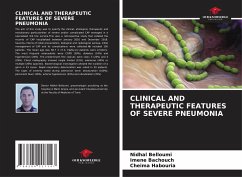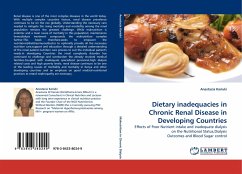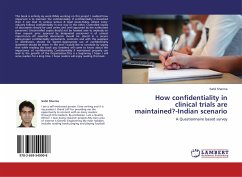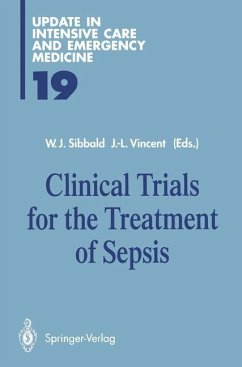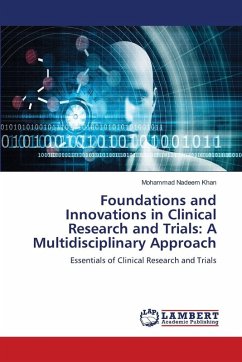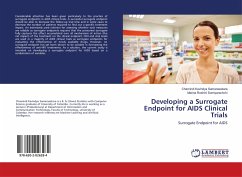
Developing a Surrogate Endpoint for AIDS Clinical Trials
Surrogate Endpoint for AIDS
Versandkostenfrei!
Versandfertig in 6-10 Tagen
24,99 €
inkl. MwSt.

PAYBACK Punkte
12 °P sammeln!
Considerable attention has been given particularly to the practice of surrogate endpoints in AIDS clinical trials. A successful surrogate endpoint should be able to decrease the follow-up trial time and in some cases to decrease the number of patients required to find out a specific treatment impact. An extensively used criterion for assessing whether such measures are reliable as surrogate endpoints requires that the presumed surrogate fully captures the effect accumulated over all mechanisms of action (the net impact) of the treatment on the clinical endpoint. CD4 and viral loads are used in...
Considerable attention has been given particularly to the practice of surrogate endpoints in AIDS clinical trials. A successful surrogate endpoint should be able to decrease the follow-up trial time and in some cases to decrease the number of patients required to find out a specific treatment impact. An extensively used criterion for assessing whether such measures are reliable as surrogate endpoints requires that the presumed surrogate fully captures the effect accumulated over all mechanisms of action (the net impact) of the treatment on the clinical endpoint. CD4 and viral loads are used in a majority of AIDS clinical trials as surrogate endpoints for evaluating the effectiveness of newly available drugs. However, no surrogate endpoint has yet been shown to be suitable in forecasting the effectiveness of anti-HIV treatments. As a solution, the current study is intended on developing a surrogate endpoint for AIDS based on a combination of variables.





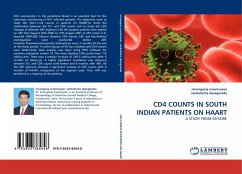
![Epidemiology of Stroke in A Developing Country [Pakistan] Cover Epidemiology of Stroke in A Developing Country [Pakistan]](https://bilder.buecher.de/produkte/56/56844/56844455n.jpg)

